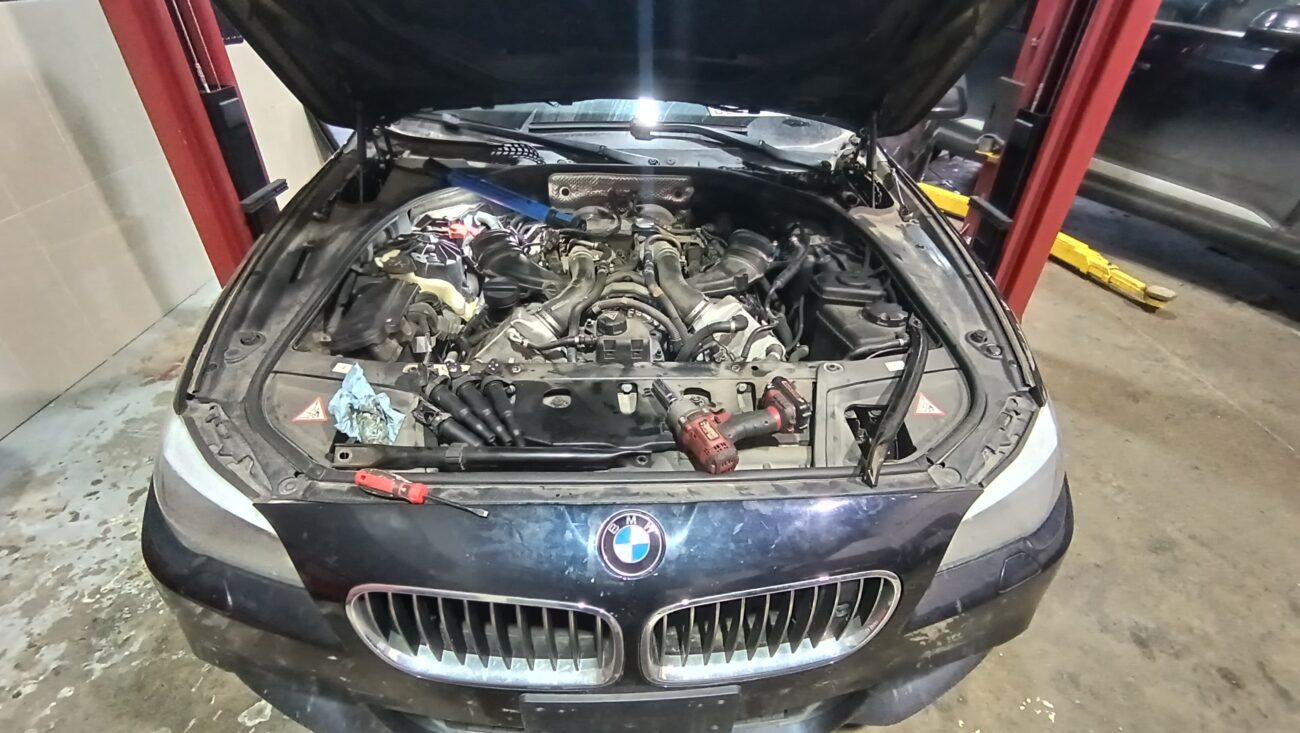BMW vehicles are known for their performance, driving comfort, and engineering quality. However, like any car, BMWs can develop certain mechanical and electronic issues over time. In this article, we will discuss the most common BMW repair problems and explain how to fix them.
1. Oil Leaks
One of the most frequent issues with BMWs is engine oil leaks. The valve cover gasket and crankshaft seals tend to wear out over time, leading to oil seepage.
Solution:
- Identify the source of the leak.
- Replace the valve cover gasket or the leaking component.
- Always use OEM gaskets for BMW repairs.
2. Cooling System Problems
BMW cooling systems are quite sensitive. Radiator leaks, water pump failures, and expansion tank cracks are common issues.
Solution:
- Regularly check the radiator and water pump.
- Monitor coolant levels to detect leaks early.
- Inspect radiator hoses frequently and replace them if necessary.
3. Electrical Failures
Many BMW models, especially E90, F30, and G20 series, experience various electrical problems. These often involve headlights, the iDrive system, the battery, and sensor malfunctions.
Solution:
- Check if the battery and alternator are working properly.
- Restart the iDrive system and update the software.
- Inspect the fuse box and wiring connections regularly.
4. Transmission Vibrations and Shaking
BMWs use ZF and GM transmission systems, and if the transmission fluid change is delayed, the transmission control module or mechatronic system may fail.
Solution:
- Change the transmission fluid every 50,000-80,000 km.
- If there are delays or jerks in gear shifting, check for a transmission control module failure.
- Regular maintenance helps prevent premature wear.
5. Steering Stiffness and Noise
Another common BMW issue is stiff or noisy steering. This is usually caused by steering pump failure or worn rack and pinion gears.
Solution:
- Check and refill power steering fluid if low.
- Inspect the steering pump and hoses for leaks.
- If the steering rack is worn out, replacement may be necessary.
6. Timing Chain Tensioner Problems
BMW engines, particularly N20 and N47, often experience timing chain tensioner issues. If the chain makes noise, it may eventually lead to engine damage.
Solution:
- Listen for unusual noises when starting the engine.
- Check for early wear signs on the timing chain and tensioner.
- Consider replacing the tensioner with a stronger aftermarket or OEM kit.
7. Turbocharger Failures
Turbocharged BMW models such as the 335i, X5, and 535i frequently suffer from turbo issues, including boost loss, oil leaks, and exhaust gas leaks.
Solution:
- Regularly measure turbo boost pressure.
- Change oil on time to prevent turbo wear.
- Inspect the exhaust system for cracks or leaks.
Get Professional BMW Repair Services
If you are experiencing any of these issues with your BMW, it is crucial to address them as soon as possible to avoid further damage. At CRC Auto Repair, we specialize in BMW repair and maintenance services. Our expert technicians have years of experience in diagnosing and fixing BMW-specific problems efficiently.
Visit our website for more information and to book an appointment: CRC Auto Repair
